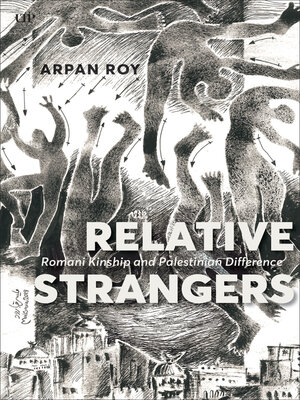Relative Strangers
ebook ∣ Romani Kinship and Palestinian Difference · Anthropological Horizons
By Arpan Roy

Sign up to save your library
With an OverDrive account, you can save your favorite libraries for at-a-glance information about availability. Find out more about OverDrive accounts.
Find this title in Libby, the library reading app by OverDrive.



Search for a digital library with this title
Title found at these libraries:
| Library Name | Distance |
|---|---|
| Loading... |
Examining how memory, intergenerational transmission, and kinship work together, Relative Strangers sheds light on Romani life in Palestine. Arpan Roy presents an ethnographic portrait of Dom Romani communities living between Palestine and Jordan, zooming in on everyday life in working-class neighborhoods, and under conditions of perpetual war and instability.
The book focuses on how Doms are able to sustain ethnic difference through kinship, even when public performances of difference are no longer emphasized – a kind of alterity that is neither visible by obvious markers like race or religious difference, nor detected by the antennas of the state. Drawing on long-term ethnographic fieldwork in Jerusalem, Ramallah, and Amman, Roy makes a case for such alterity for Romani people and other groups in the region.
Analysing intimate ethnographic scenes through anthropological theories of kinship, psychoanalysis, social theory from the Global South, and more, the book reveals how alterity in the Middle East does not adhere to rigid identitarian categories. Ultimately, Relative Strangers demonstrates the inadequacy of transposing models of pluralism centred on European and American experiences of minoritization onto other contexts.







